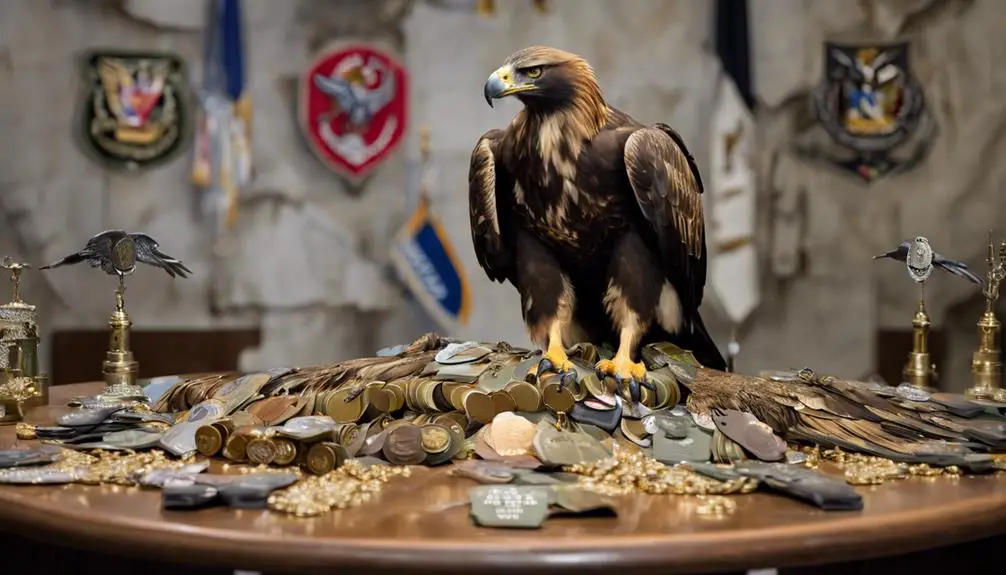You're looking for military slang to give a job well done? Hooah, Oorah, and more are the robust compliments you need to show respect, admiration, and a job well done. Hooah symbolizes approval, appreciation, and respect, while Oorah fuels motivation and esprit de corps. Good to Go seals approval, and Roger That maintains clear communication. Bravo Zulu acknowledges exceptional performance, and phrases like Well Done, Devil Dog and Squad Goals celebrate teamwork and achievements. From the battlefield to everydaylife, these phrases will get you started – but there's more where that came from, and you're just getting started.
Hooah: The Classic Compliment
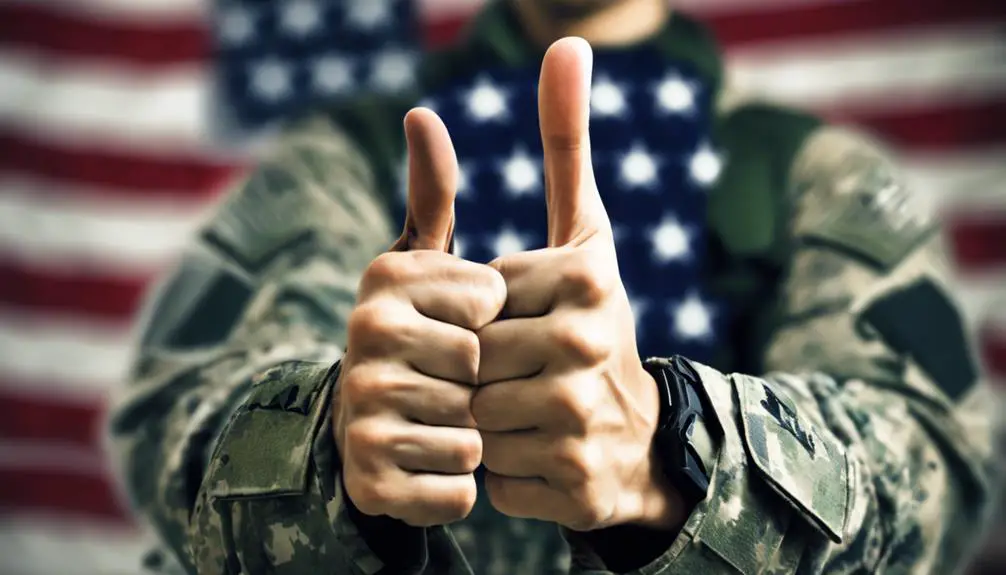
When you're doing something right, your sergeant might let you know with a hearty 'Hooah,' a classic military compliment that's been around since the 1960s. This iconic phrase is deeply ingrained in military culture, symbolizing approval, appreciation, and respect. In the hooah culture, a simple "Hooah" can boost military morale, acknowledging a job well done and motivating you to keep pushing forward.
The origins of "Hooah" are unclear, but its impact is undeniable. It's more than just a casual expression; it's a badge of honor, a sign that you've met expectations and exceeded them. When you hear that enthusiastic "Hooah," you know you've made a difference, no matter how small it may seem. This powerful phrase has the ability to lift spirits, foster camaraderie, and strengthen unit cohesion. By embracing the hooah culture, military leaders can create a positive, productive environment that encourages excellence and teamwork. So, the next time you hear "Hooah," remember it's more than just a word – it's a symbol of respect, admiration, and military pride.
Oorah: Marine Corps Motivation
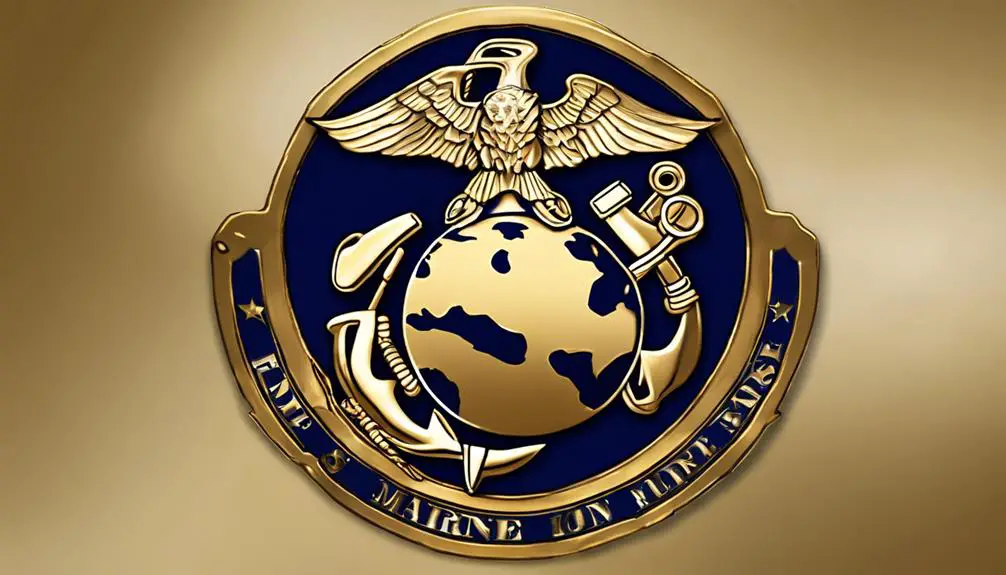
In the Marine Corps, you'll often hear a loud, enthusiastic 'Oorah' echoing through the ranks, a battle cry that's been fueling motivation and esprit de corps since the early 20th century. This iconic phrase embodies the Marine mindset, an unwavering commitment to excellence and teamwork. When you hear 'Oorah', you know it's a call to action, a rallying cry that ignites motivation and propels you forward.
As you immerse yourself in the Marine Corps culture, you'll find that 'Oorah' is more than just a phrase – it's a symbol of corps camaraderie. It's a declaration of unity, a shared sense of purpose that binds Marines together. When you respond with an 'Oorah', you're affirming your dedication to the Marine Corps values of honor, courage, and loyalty. You're signaling that you're ready to push yourself to the limit, to overcome obstacles, and to emerge victorious.
In the Marine Corps, 'Oorah' is more than just a phrase – it's a state of mind. It's a mindset that propels you to be your best, to aim for excellence, and to never give up. So, the next time you hear 'Oorah', remember that it's not just a phrase – it's a call to action, a battle cry that fuels your Marine mindset motivation.
Good to Go: Sealing Approval
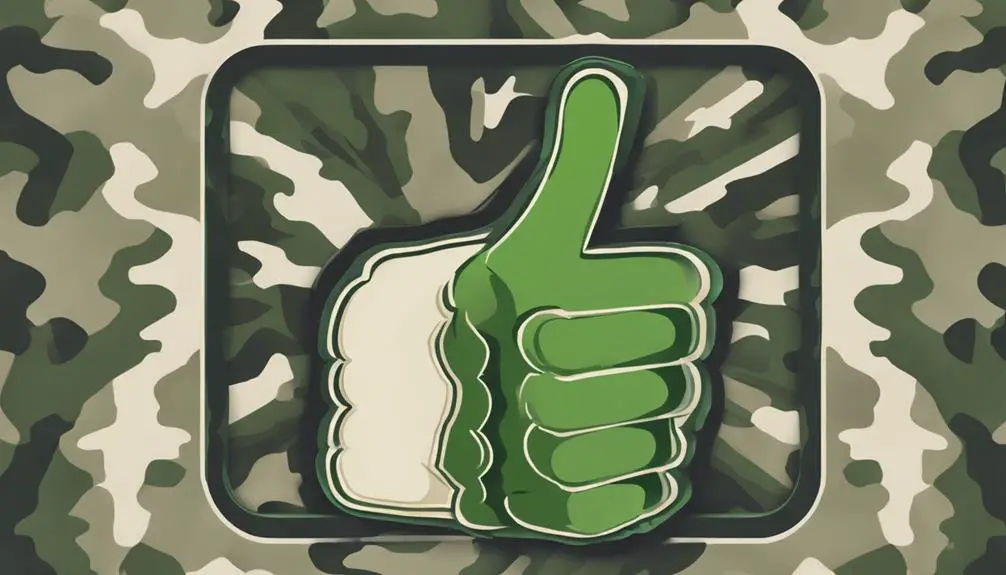
You've likely heard 'Good to Go' echoing through military ranks, a phrase that seals approval and confirms readiness for action. This phrase is more than just a casual expression – it's a seal of approval that signifies everything is in order and it's time to move forward. When you hear 'Good to Go', you know you've got the green light approval to proceed with the mission or operation. It's the final checkmark on the to-do list, the last hurdle cleared, and the ultimate thumbs-up. Essentially, 'Good to Go' is about sealing the deal, giving you the confidence to execute the plan with precision and accuracy. It's a phrase that instills confidence, conveying that every aspect of the operation has been carefully considered and deemed ready for execution. So, when you receive the 'Good to Go' confirmation, you know it's time to gear up and get moving – the mission is a go!
Roger That: Affirmative Response
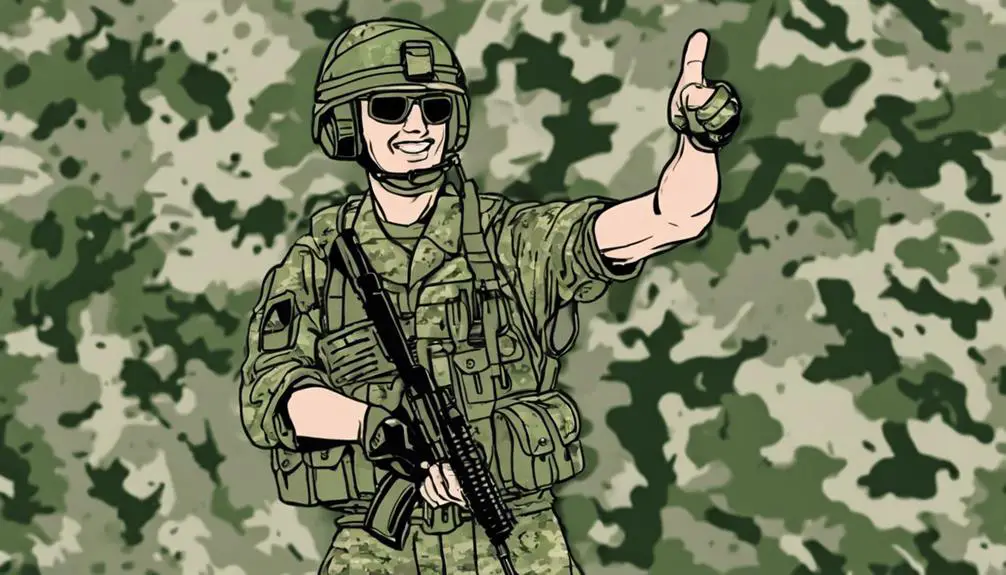
Now that you've received the 'Good to Go' confirmation, it's time to acknowledge and respond to orders with a phrase that's just as ubiquitous in military communication: 'Roger That'. This phrase is more than just a important part of maintaining communication clarity in high-stress situations. When you respond with 'Roger That', you're not just acknowledging receipt of an order; you're also confirming that you understand and will comply with the instruction.
In radio communication, 'Roger That' serves as a concise way to verify that the message has been received correctly. It's often used during radio checks to confirm that transmission and reception are clear and accurate. By responding with 'Roger That', you're providing assurance that the message has been understood correctly, reducing the risk of miscommunication.
In the heat of the moment, clear and concise communication is essential. 'Roger That' is a key tool in maintaining that clarity, ensuring that orders are carried out efficiently and effectively. So the next time you receive an order, remember to respond with confidence: 'Roger That'.
Bravo Zulu: Naval Accolades
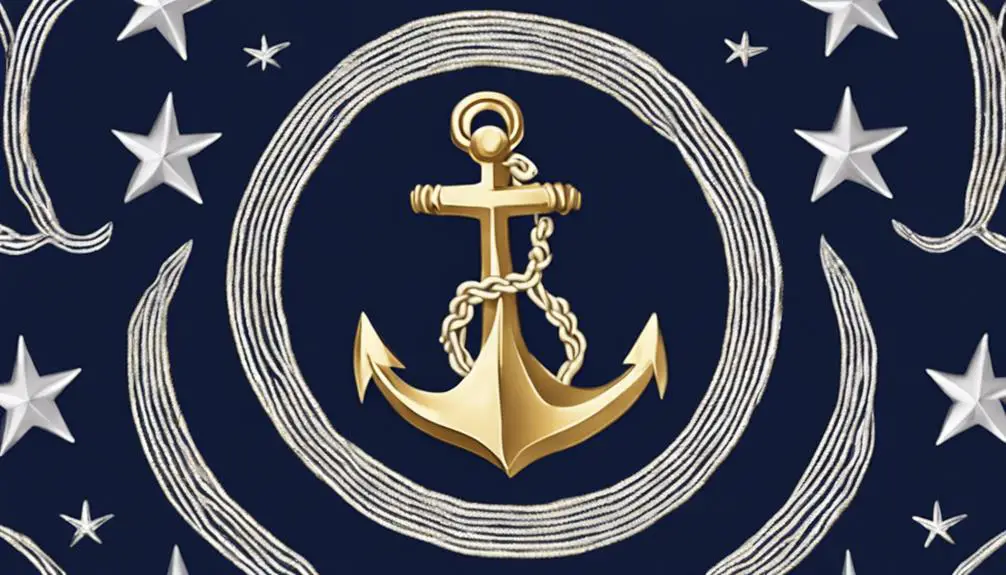
When you've earned recognition for a job well done, your superior might respond with 'Bravo Zulu,' a naval term of praise that's equivalent to a hearty 'good job' or 'well done.' This phrase is deeply rooted in naval traditions, where it's used to acknowledge exceptional performance or outstanding achievements.
In the naval community, 'Bravo Zulu' is often used in conjunction with Fleet commendations, which recognize units or individuals who have demonstrated exceptional bravery, skill, or dedication. When you hear these words, you know you've made a significant impact and have earned the respect of your peers and superiors.
The phrase is often used in formal and informal settings, from official ceremonies to casual conversations. It's a term of respect and admiration, conveying that your work has exceeded expectations. So, the next time you hear 'Bravo Zulu,' know that you've earned a badge of honor and recognition within the naval community.
Kudos in the Kill Zone
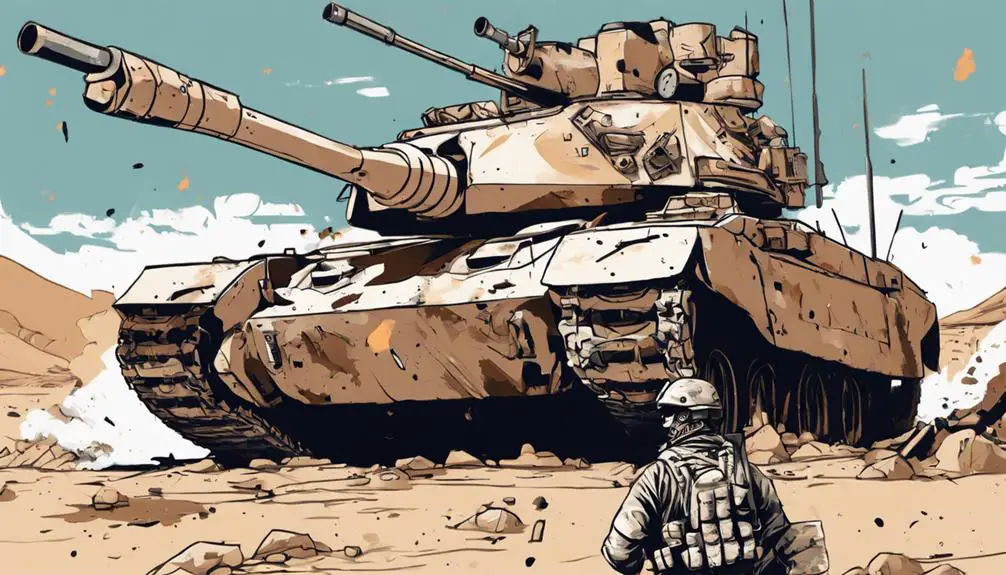
In the high-stakes environment of special operations, 'Kudos in the Kill Zone' is a phrase that acknowledges a job exceptionally well done, often in the heat of battle. You've just executed a flawless op, and your team leader gives you a nod of approval. This tactical praise is more than just a pat on the back – it's a combat commendation that recognizes your skill and bravery under fire.
When you're in the kill zone, every second counts, and errors can be fatal. So, when you pull off a daring maneuver or make an important call, your teammates take notice. 'Kudos in the Kill Zone' is a badge of honor, a signal that you've got what it takes to operate at the highest level. It's not just about completing the mission; it's about doing it with style and precision.
In this world, there's no room for mistakes, and recognition is hard-won. When you earn 'Kudos in the Kill Zone,' you know you've earned your stripes. You've proven yourself in the most intense, high-pressure situations, and your comrades respect you for it.
Job Well Done, Soldier
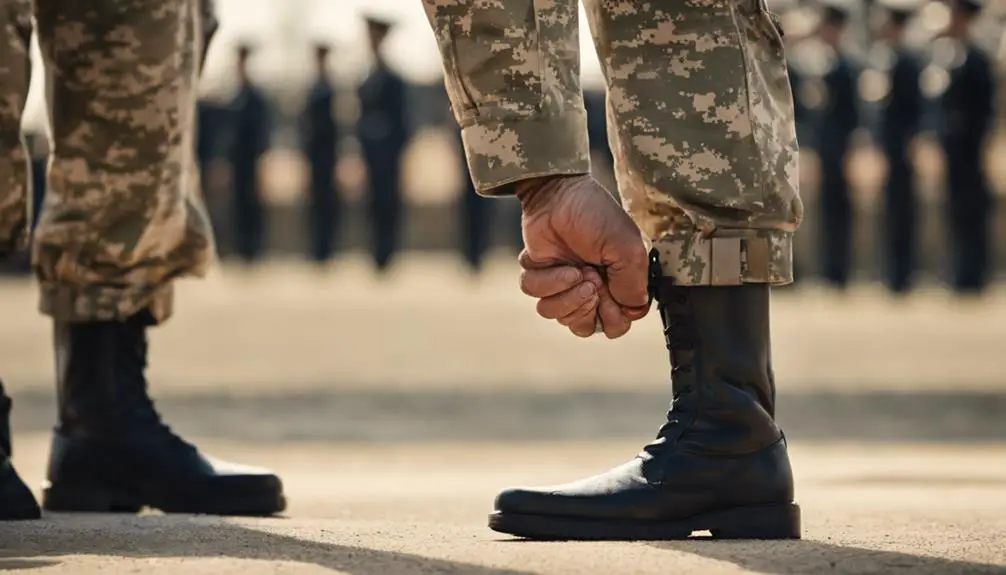
You've earned the coveted 'Job Well Done, Soldier' recognition, a badge of honor that signifies your ability to perform under extreme pressure and make split-second decisions that make all the difference. This battle-hardened recognition is reserved for those who have consistently demonstrated exceptional skill and bravery in the face of adversity.
Your meritorious mention is a proof of your unwavering dedication to your unit and your country. It's a nod to your ability to stay focused and composed under fire, to think on your feet, and to lead by example. You've proven yourself to be a true asset to your team, and your 'Job Well Done, Soldier' recognition is a well-deserved acknowledgment of your hard work and sacrifice.
This recognition isn't just a pat on the back; it's a badge of honor that opens doors to new opportunities and greater challenges. You've earned the respect of your peers and the admiration of your superiors. You're a shining example of what it means to be a true warrior, and your 'Job Well Done, Soldier' recognition is a reminder that your efforts haven't gone unnoticed.
Airborne Accolades and Cheers
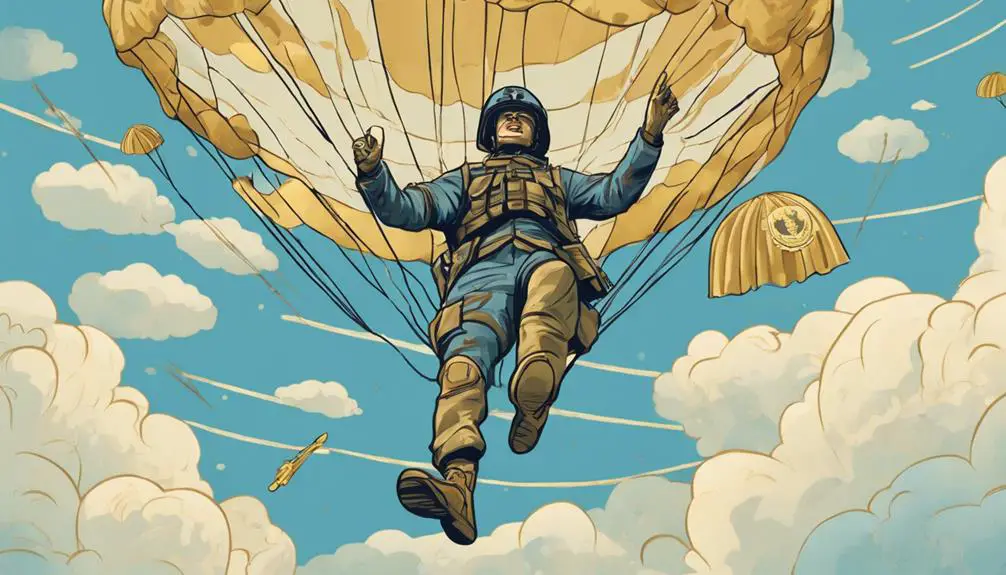
Your 'Job Well Done, Soldier' recognition is just the starting point, as your exceptional performance has earned you a new level of acclaim among your airborne comrades, who are enthusiastic to celebrate your achievements with thunderous applause and hearty cheers.
As you bask in the praise of your peers, you'll hear phrases like 'Hooah!' or 'Oorah!' – expressions of admiration and respect that echo through the ranks. Your tactical triumphs have earned you a reputation as a force to be reckoned with, and your battle buddies are keen to acknowledge your accomplishments.
In the airborne community, recognition is not just about individual accolades; it's about the collective pride and camaraderie that comes with being part of an elite group of warriors. Your achievements reflect positively on your unit, and your comrades are proud to stand alongside you. As you accept the praise of your peers, remember that it's not just about you – it's about the team that's got your back.
Squad Goals: Teamwork Triumphs
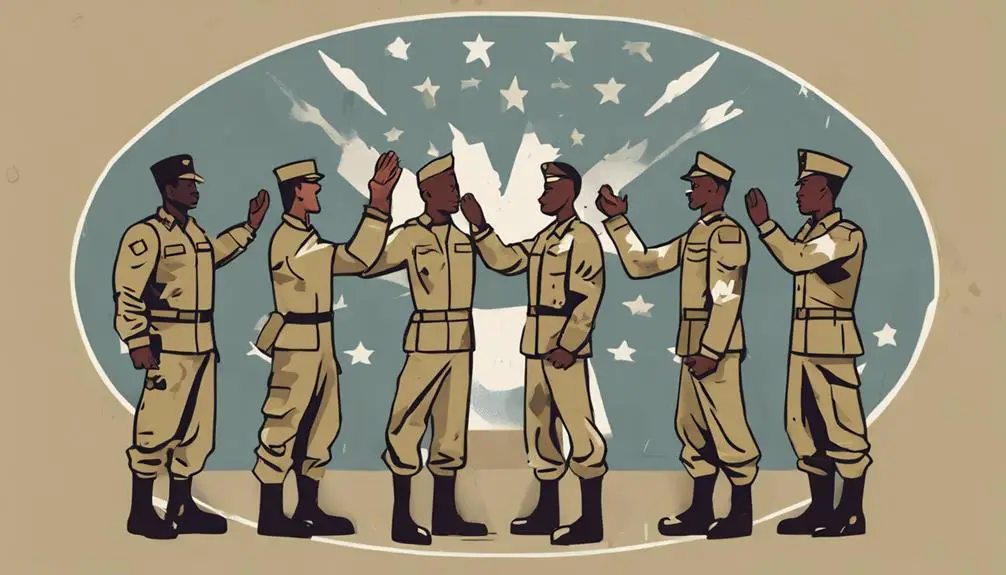
As you stand shoulder-to-shoulder with your squad, you know that every triumph is a proof of the strength of your collective efforts. You've worked tirelessly to develop a cohesive unit, and it shows in every tactical operation. Your team's collaborative victories are a sign of the power of tactical teamwork. When every member of the squad is working in harmony, the results are nothing short of impressive.
You've mastered the art of communication, anticipating each other's moves and covering each other's backs. Your squad's ability to adapt to changing circumstances is unparalleled, and it's this flexibility that sets you apart from the rest. You've learned to trust each other implicitly, and that trust is the foundation of your success.
As you reflect on your collaborative victories, you realize that they're not just about individual achievements – they're about the collective strength of your squad. You've proven that when you work together, there's no challenge too great to overcome. Your tactical teamwork has become a force to be reckoned with, and you know that as long as you stand together, nothing can stop you.
Well Done, Devil Dog
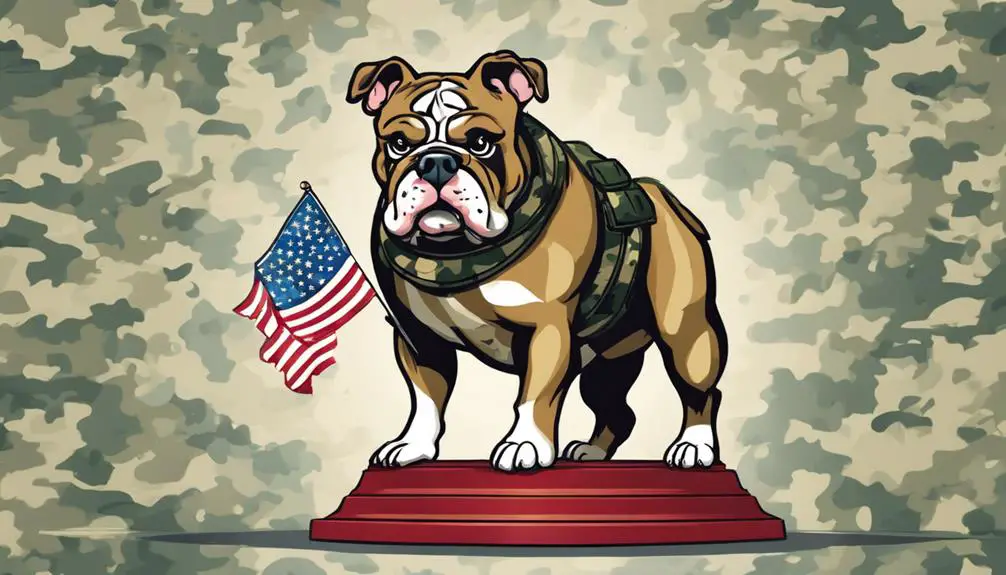
In the high-stakes world of military operations, 'Well Done, Devil Dog' is a badge of honor, signifying that you've earned the respect of your comrades and superiors alike. You've demonstrated exceptional skill, bravery, and dedication to your unit, and this phrase is a nod to your outstanding performance.
The term 'Devil Dog' has its roots in World War I, when German soldiers dubbed American Marines "Teufelhunde" or "Devil Dogs" due to their fierce fighting spirit. Today, the phrase is reserved for those who embody the same unwavering commitment to their fellow soldiers and the mission at hand.
As a Devil Dog, you're part of an elite group of service members who have consistently demonstrated exceptional leadership, tactical prowess, and a willingness to put the needs of others before your own. Devil dog demographics show that this phrase is often used to acknowledge achievements in high-pressure, high-stakes environments, such as combat zones or special operations. When you hear "Well Done, Devil Dog," you know you've earned the admiration and respect of those around you.
Frequently Asked Questions
Are Military Slang Terms Only Used in the US Military?
You might think military slang is unique to the US military, but that's not the case. Military slang terms are adopted globally, reflecting cultural significance and camaraderie among soldiers worldwide. While some terms may originate from US military culture, they're often adapted and modified to fit local languages and customs. This global adoption highlights the universal language of the military, transcending borders and fostering a sense of community among soldiers.
Can Civilians Use Military Slang in Everyday Conversation?
You're wondering if you can use military slang in everyday conversation. The answer is yes, but be mindful of cultural appropriation concerns. Using slang to sound cool can come across as inauthentic or disrespectful. If you're not affiliated with the military, avoid using terms that might be sacred to veterans or active-duty personnel. Use slang responsibly and avoid offending those who've earned the right to use it.
Are There Any Military Slang Terms Specific to Each Branch?
You'll find that each military branch has its own distinct slang terms. In the Coast Guard, you might receive commendations for a job well done, while in the Navy, you'll get nods of approval from your superiors. The Army has its own set of phrases, like "Hooah" to express enthusiasm, while the Air Force uses "BZ" to acknowledge a job well done. The Marine Corps has its own unique terms, like "Oorah" to show enthusiasm or approval.
Are Military Slang Terms Only Used for Positive Reinforcement?
You think military slang is all rainbows and unicorns, only used to boost morale with feel-good phrases? Think again. While it's true that military morale boosters like "Hooah" and "Oorah" originated as positive phrase origins, they're not the only game in town. Negative reinforcement, like "smoking" someone (giving them a hard time), is also part of the military slang lexicon. So, no, military slang terms aren't just used for positive reinforcement.
Can Military Slang Terms Be Used in Formal Military Communications?
You're wondering if military slang terms can be used in formal military communications. The answer is no. Formal tone limitations and official communication guidelines dictate that formal military communications maintain a professional tone, free from colloquialisms and slang. Using military slang in formal communications can undermine the authority and credibility of the message, so it's best to stick to standardized language to guarantee clarity and respect.

